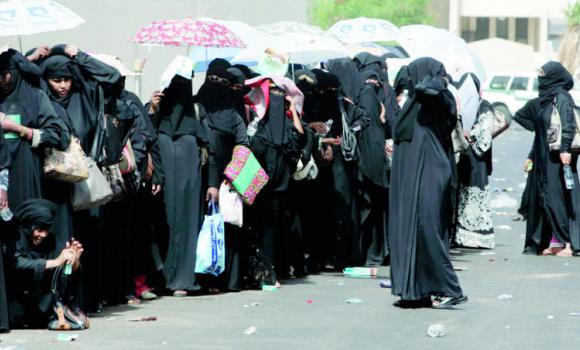
Jeddah, Jun 5: Hundreds of expatriate housewives who overstayed their Haj and Umrah visas are now becoming domestic workers in name only so that they can stay in the Kingdom with their husbands, Arab News has discovered.
They are exploiting a Saudi government concession that allows Umrah or Haj pilgrims who came to the Kingdom prior to July 2008, to become domestic workers. In reality, they do not work as domestic workers in the homes of their employers, the newspaper has found.
The concession is part of a raft of measures announced by the Kingdom last month for illegal workers to regularize their work status or go home. They have until July 3, the end of a three-month grace period, to do so.
This option has allowed foreign women, who arrived in the Kingdom on Haj or Umrah visas to join their husbands in Makkah, Madinah and Jeddah, as legal employees.
The domestic help sector in the Kingdom is dominated by Indonesia followed by the Philippines, who together account for nearly 70 percent of the total domestic help in the Kingdom.
In the current regularization process, only a few women from these two East Asian nations are turning up at the passport office in Jeddah’s Rehab district to provide their biometric details before applying for an employment visa.
Hundreds of women from Sudan, Yemen, Somalia, Pakistan and Ethiopia are converging on Rehab district to process their documents.
Husbands who could not obtain family visas because they lack the required academic qualifications have opted for this easy way to keep their wives in the Kingdom.
According to Ministry of Haj statistics up to the end of November 2012, 25,000 Umrah pilgrims failed to return to their countries. Pakistan stood top of the list with 9,752 pilgrims, followed by Egypt with 3,519.





Comments
Add new comment